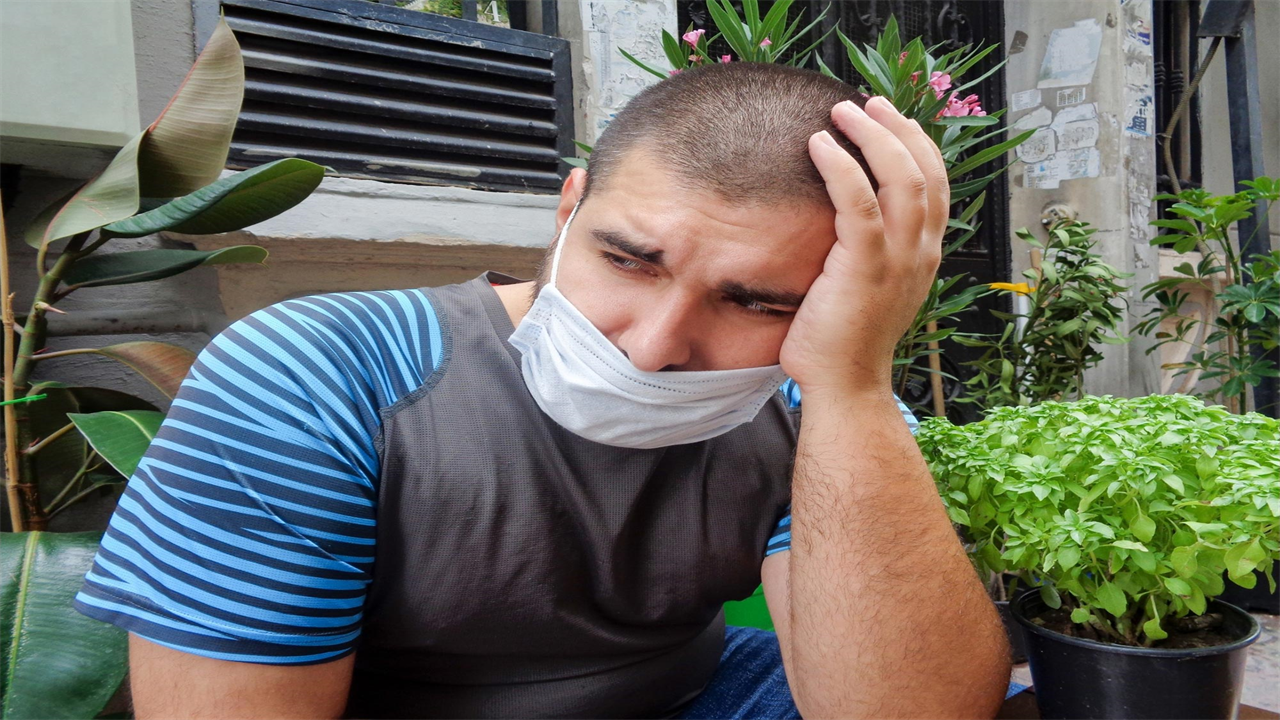Studies Reveal Detrimental Impact of Social Isolation and Quarantine Throughout the COVID-19 Pandemic
0 View
Share this Video
- Publish Date:
- 26 May, 2021
- Category:
- Covid
- Video License
- Standard License
- Imported From:
- Youtube
Tags

Studies show that social isolation and quarantine during the COVID-19 pandemic can adversely affect people living in pre-existing conditions.
Social isolation and quarantine can adversely affect the physical and mental health of people with pre-existing conditions, according to two studies presented at the 23rd European Congress of Endocrinology (e-ECE 2021) on Wednesday, May 26 at 2:14 PM hour. CET.
The studies bring together research into the impact of social isolation and quarantine for people with diabetes in the Adjara region of Georgia, and for patients with hypocortisolism in Italy. Both studies reported that social isolation during the pandemic caused significant psychological and / or physical problems in the observed individuals.
Data from the first study showed that the impact of quarantine on people with diabetes in the Adjara region caused blood pressure (BP) to increase in 88.2% of patients, with 50% of these cases resulting in hospitalization with high blood pressure. In addition to these physical factors, increased feelings of fear and anxiety were observed in 82% of the patients. In the second study, patients with hypocortisolism experienced increased anxiety and depression associated with self-dissatisfaction and decreased resilience, compared to Italian healthy controls. Since these are all factors that contribute to the overall deterioration in health, these findings suggest that further research is needed to help patients with pre-existing conditions remain fit and healthy during the current pandemic.
In the Adjara Region study, Dr. Liana Jashi and the research team conducted an online questionnaire and they collected answers from 16 endocrinologists and 22 primary care physicians and general practitioners. The study confirmed the negative, indirect effects of social isolation and quarantine on people with diabetes. It reported a list of negative effects, such as reduced access to medical care, weight gain, and increased cigarette and alcohol consumption. Physical activity decreased by 29.8%, an essential preventive measure for further physical and psychological problems.
“This study emphasizes that people with diabetes need more support during pandemics to keep moving and protect their physical and mental health. National health services should use this data and future studies to implement better social care around supporting people with pre-existing conditions, ”said Dr. Jashi.
In the second study, Dr. Chiara Simeoli said the data collected during the last three weeks of the mass quarantine in Italy lasted for two months, in a web-based, multicentre, case-control study involving 12 different Italian centers. The study confirmed that a large cohort of 478 patients with hypocortisolism, and in particular 363 with adrenal insufficiency and 115 with congenital adrenal hyperplasia, adequately treated with glucocorticoids, showed higher anxiety and depression associated with self-esteem dissatisfaction and reduced resilience in comparison with Italian healthy controls, suggesting the deleterious impact of social isolation on the mental health of these patients, who are particularly vulnerable and vulnerable to infection and stress. In addition, patients with adrenal insufficiency reported a worse quality of life than patients with congenital adrenal hyperplasia.
“These findings confirmed that the COVID-19 epidemic, social isolation and mass quarantine, in addition to the enormous impact on physical health, represent significant psychological stressors, which have serious consequences for mental health, even more so for people with pre-existing conditions. An empowerment of psychological counseling for these vulnerable patients during COVID-19 should be considered by the national health services, ”adds Dr. Simeoli adds.
Both studies indicate that additional larger studies over a longer period of time are needed for further research.
Abstract 803: Impact of social isolation and quarantine on the course of diabetes mellitus and its complications during the Covid 19 pandemic in the Adjara region, Georgia
Abstract 1337: Psychological distress in patients with hypocortisolism during mass quarantine for Covid-19 epidemic in Italy










